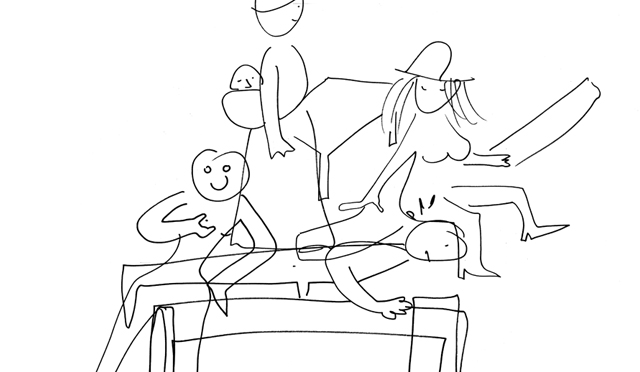Search
To search for an exact match, type the word or phrase you want in quotation marks.
A*DESK has been offering since 2002 contents about criticism and contemporary art. A*DESK has become consolidated thanks to all those who have believed in the project, all those who have followed us, debating, participating and collaborating. Many people have collaborated with A*DESK, and continue to do so. Their efforts, knowledge and belief in the project are what make it grow internationally. At A*DESK we have also generated work for over one hundred professionals in culture, from small collaborations with reviews and classes, to more prolonged and intense collaborations.
At A*DESK we believe in the need for free and universal access to culture and knowledge. We want to carry on being independent, remaining open to more ideas and opinions. If you believe in A*DESK, we need your backing to be able to continue. You can now participate in the project by supporting it. You can choose how much you want to contribute to the project.
You can decide how much you want to bring to the project.
Today it’s a Sunday for soul-searching. For a while now there’s been talk of a red line being about to be crossed. The red line is for some, the level of the risk premium that endangers the objective of the deficit, bringing closer the spectre of a bailout (Cyprus is right there). The red line is, for others, this limit with no return, in which standards of the welfare state are decimated and in passing some fundamental rights, and even humans.
We propose two documentaries that can help us understand what is going on, or better still, the origins of what is happening, because as Naomi Klein said, “the worst scenario is that we lose the plot, if we lose track of the thread of history, of memory, we are vulnerable to the doctrine of shock”.
The Shock Doctrine(2009), directed by Michael Winterbottom y Mat Whitecross is, in some way, the unofficial history of the free market. Based on the book by Naomi Klein with the same title, it traces a narrative thread in search of the precedents of the financial power that we are experiencing. And finds its beginnings, no longer in the governments of Reagan and Thatcher, but in the Chile that terminated Allende and eulogised Pinochet. It was in Chile where numerous economics students were given grants to study in the University of Chicago along with Milton Friedman then returning to their country to introduce his economic thought. From there to the present dictatorship of the financial world there is a more or less a progression in crescendo that not even Friedman in his wildest dreams could have imagined.
The second documentary that we want to propose is Capitalism: A Love Story, also from 2009. In which Michael Moore returns to the subject that he already dealt with in his first documentary, Roger & Me, the impact of the domination of large corporations on the life of the average North American citizen. We stick with this scene, that could almost be an art intervention, in which the filmmaker wraps tape, marked with “Crime Scene Do Not Cross”, around the buildings of AIG, Goldman Sachs, Morgan Stanley and others.
And we end with the final message of Naomi Klein: “An era of crisis like the current one is ideal for thinking about history. The shock doctrine only functions if we don’t know that it exists. What is encouraging about this economic crisis is that this tactic is being eroded because there is no surprise factor. We’re becoming shock proof”. From there, to start to act is just one small step..

A*DESK is a critical platform focused on publishing, training, experimentation, communication and dissemination in relation to contemporary culture and art, which is defined by transversality. The starting point is contemporary art, because that is where we come from and this awareness allows us to go much further, to incorporate other disciplines and forms of thought in order debate issues that are relevant and urgent for understanding our present.
"A desk is a dangerous place from which to watch the world" (John Le Carré)